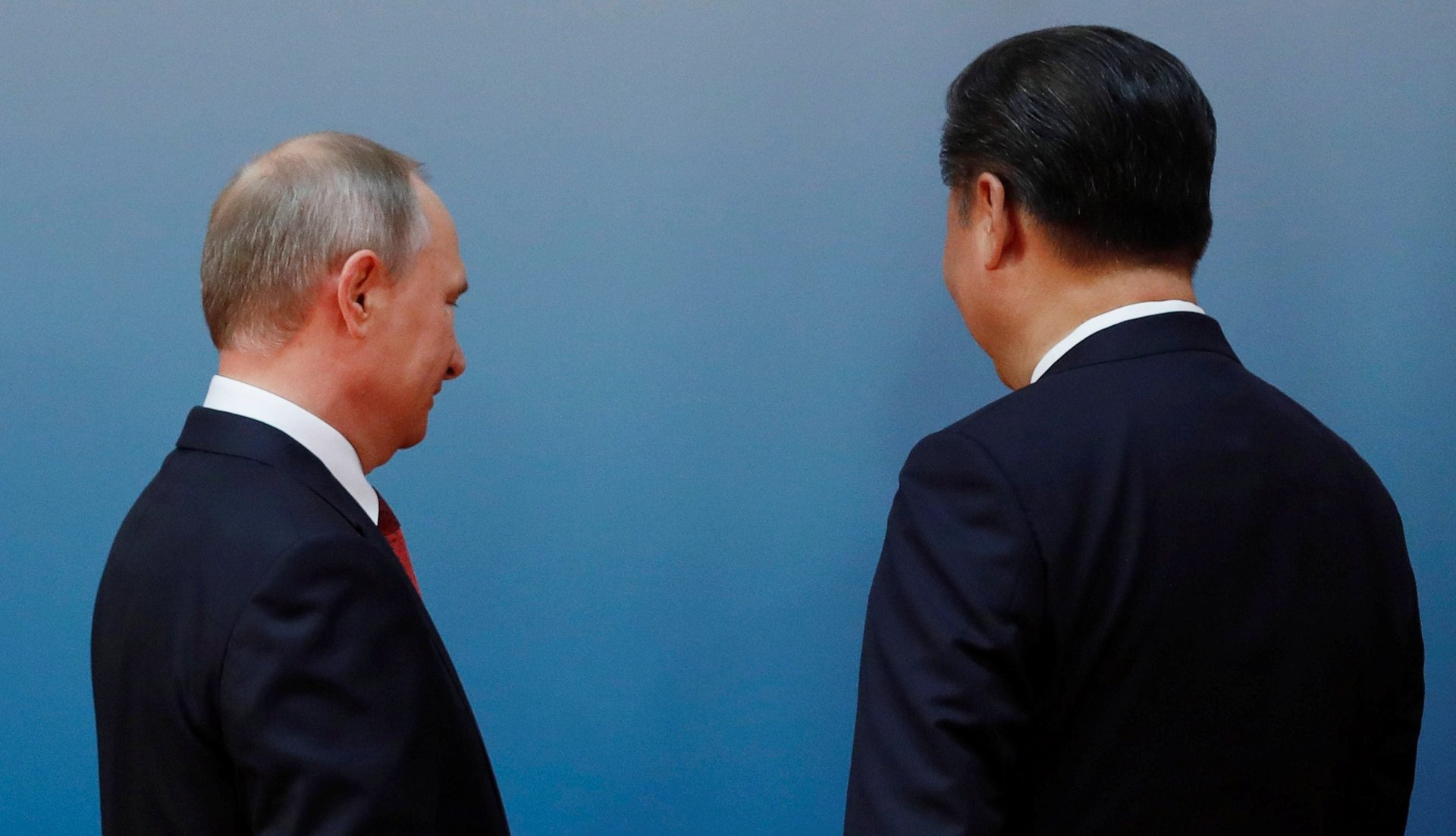Russia and China are proving Trump right on North Korea: They hold all the cards
The Trump administration is touting new sanctions leveled against North Korea by the UN Security Council yesterday (Sept. 11), after it pushed for a vote on the matter. But it was less the power of Washington, and more that of Beijing and Moscow, that was on display.


The Trump administration is touting new sanctions leveled against North Korea by the UN Security Council yesterday (Sept. 11), after it pushed for a vote on the matter. But it was less the power of Washington, and more that of Beijing and Moscow, that was on display.
The US originally wanted to impose an oil embargo against North Korea. There were other ideas in its draft, but that was the big one. Neither China nor Russia liked the notion, and as permanent council members they have veto power. The US compromised. Resolution 2375 merely imposes a cap, at current levels, on crude oil exports to North Korea. It’s questionable what effect that will have.
“If there’s a total embargo, that would be a good step,” South Korean lawmaker Lee Soo-hyuck told the Washington Post (paywall). “But setting a cap on crude oil exports to North Korea is meaningless.”
China and Russia have their own ideas on how to resolve tensions on the Korean Peninsula. They’ve pushed for a “freeze for freeze” approach, whereby Pyongyang agrees to stop its weapons tests and in return the US and South Korea stop their large-scale military exercises. The idea has been ignored, so far. But the ability of Beijing and Moscow to shape the new sanctions hints at their power to also shape how the Korean drama unfolds in the years ahead.
The oil embargo was a long shot. “It would be a different kind of sanction that would have broader impact on the economy,” Kent Boydston, an analyst at the Peterson Institute for International Economics, told CNN Money.
China has made clear that it’s against actions that could destabilize the Korean Peninsula. It fears chaos at its doorstep, whether in the form of a nasty conflict or a flood of refugees. It’s especially sensitive to turbulence as it prepares for this autumn’s 19th National Congress of the Communist Party, a key event that will shape its leadership structure for years to come. Beijing wants to avoid making its belligerent neighbor a permanent enemy, as well.
Russian president Vladimir Putin argued that an oil embargo would not hurt the North Korean regime so much as ordinary people in the country, and last week he gave clear signals (paywall) Moscow would vote down the idea. “Do not succumb to emotions and drive North Korea into a corner,” he said after meeting South Korean president Moon Jae-in, who backed an embargo, in Vladivostok. “Now more than ever, everyone needs to be coolheaded and avoid the steps that lead to an escalation of tension.”
While not nearly as strong as what the White House wanted, the new sanctions are tough enough to signal that the frustration with Pyongyang runs deep in Beijing and Moscow, too. The resolution imposes a ban on North Korea’s textiles exports, which brought in over $750 million last year and ranked second only to coal and other minerals. It also aims to stop Pyongyang from sending laborers abroad to make money for the regime, which will eventually deprive it of $500 million a year, according to Nikki Haley, US ambassador to the UN. Natural gas liquids are banned as well, along with other energy-related products.
But the resolution basically bans or caps what China and Moscow permitted to be banned or capped. Beijing has long argued that, despite pressure from Trump to do more, it can’t control the actions of North Korea. While that is clearly true, China also, along with Russia, holds more cards than it would care to admit.